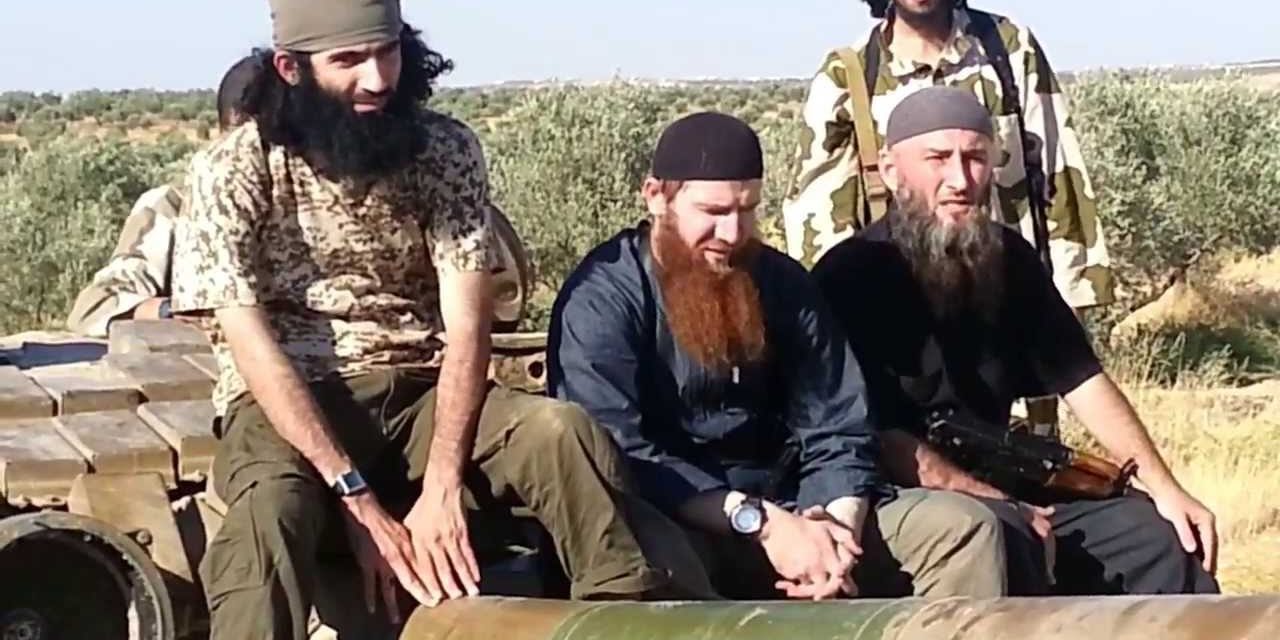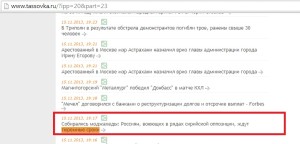A follow-up to ….
Recent amendments to the Criminal Code of the Russian Federation make it an offense for Russian nationals to take part in combat operations in foreign states — at least, if they are fighting with “armed formations” that are outside local laws and with aims “contrary to the interests of the Russian Federation”.
The amendments are introduced into Article 208, “Organization of an Illegal Armed Formation, or Participation in it”, and stipulate that Russian nationals found guilty of participating in combat operations outside the territory of the Russian Federation can be sentenced to a maximum prison term of six years.
Current legislation deals only with the formation of, and/or participation in, prohibited armed groups in the territory of the Russian Federation.
Moscow has been increasingly concerned about Russian nationals, mainly from the Northern Caucasus, traveling to Syria to fight in Islamist factions against Syrian President Bashar al-Assad.
The amendments, which come after recent comments by First Deputy Director of the FSB, Sergei Smirnov, who said that around 300-400 Russian nationals are fighting in Syria in opposition armed groups.
Kavkaz Center, a Chechnya-based pro-jihad website that supports to Caucasian Emirate and reports on Russian fighters in Syria, noted the reports on the amended legislation, saying that the FSB were “making threatening gestures, out of impotence and frustration, against Mujahideen from the Caucasus in Syria”, and said that there were “no less than around 1,000” mujahideen from the North Caucasus in Syria, and that “this number is growing”.
However, the amended legislation also comes amid reports that a private security firm, Slavonic Corps Ltd, which was registered in Hong Kong but which appears to be linked to the Russian security firm Moran Security Group Ltd, hired Russians to carry out private security contract work in Syria, for the Syrian Government.
It is not clear whether the amended legislation — which specifies that it is those fighting in armed formations abroad that are (a) outside of local legislation, and (b) against the interests of the Russian Federation — would also apply to the private contractors, who it appears participated in armed combat operations outside of Russia without the approval of the Russian authorities, albeit apparently under contract from the Syrian Government, an ally of Moscow.
It is noteworthy that State news agency ITAR TASS, which originally reported the amendments to the legislation, has taken its report down; however another report in Rossiskaya Gazeta, references it and is still available.
A screenshot of Tassovka, a site that publishes news ticker links to ITAR TASS headlines, shows the article was published on November 15 (the link now redirects to ITAR TASS’s frontpage:
Our translation of the relevant legislation, with the amendments shown in bold:
Article 208: Organization of an Illegal Armed Formation, or Participation in It
1. Creation of an armed formation (unit, squad, brigade or any other group) that is not envisaged by a federal law, and likewise the leadership or funding of such a formation,
(by the amendment to Federal Law 27.07.2006 No. 153-FZ)
shall be punishable by deprivation of liberty for a term of two to seven years, or by deprivation of liberty for a term of up to two years.
(by the amendment to Federal Law 27.12.2009 No. 377-FZ)
2. Participation in an armed formation that is not provided for by a federal law and likewise participation in the territory of a foreign State in an armed formation that is not envisaged by the legislation of the State, with aims contrary to the interests of the Russian Federation
shall be punishable by deprivation of liberty for a term of up to six years, or by restraint of liberty for a term of up to two years.
Note: A person who has ceased to take part in an illegal armed formation of his own free will, and has handed in his weapons, shall be released from criminal responsibility unless his actions contain a different corpus delicti.
(Featured image: Russian-speaker Abu Umar ash-Shishani (“the Chechen”), the leader of the predominantly North Caucasian, Russian-speaking Army of Immigrants and Helpers and of ISIS’s Northern Division)


